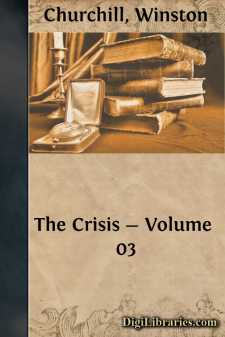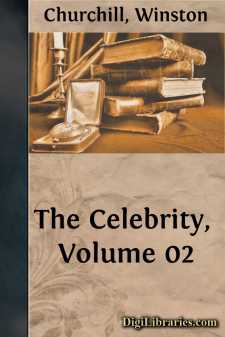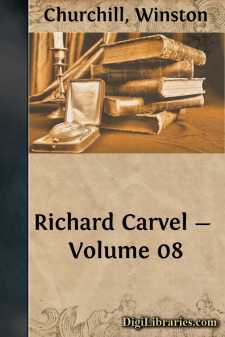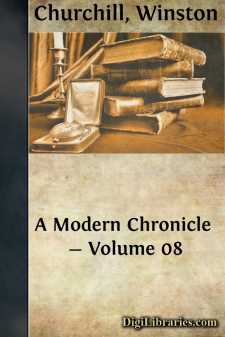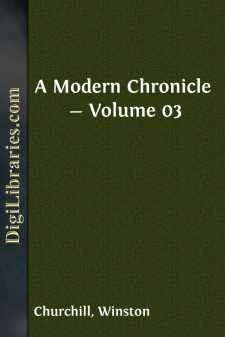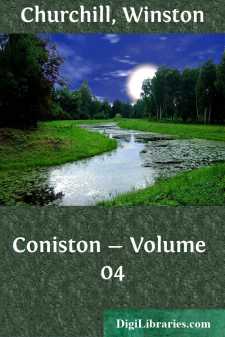Categories
- Antiques & Collectibles 13
- Architecture 36
- Art 48
- Bibles 22
- Biography & Autobiography 813
- Body, Mind & Spirit 142
- Business & Economics 28
- Children's Books 14
- Children's Fiction 11
- Computers 4
- Cooking 94
- Crafts & Hobbies 4
- Drama 346
- Education 46
- Family & Relationships 57
- Fiction 11829
- Games 19
- Gardening 17
- Health & Fitness 34
- History 1377
- House & Home 1
- Humor 147
- Juvenile Fiction 1873
- Juvenile Nonfiction 202
- Language Arts & Disciplines 88
- Law 16
- Literary Collections 686
- Literary Criticism 179
- Mathematics 13
- Medical 41
- Music 40
- Nature 179
- Non-Classifiable 1768
- Performing Arts 7
- Periodicals 1453
- Philosophy 64
- Photography 2
- Poetry 896
- Political Science 203
- Psychology 42
- Reference 154
- Religion 513
- Science 126
- Self-Help 84
- Social Science 81
- Sports & Recreation 34
- Study Aids 3
- Technology & Engineering 59
- Transportation 23
- Travel 463
- True Crime 29
The Crisis - Volume 03
Categories:
Description:
Excerpt
CHAPTER I
RAW MATERIAL
Summer, intolerable summer, was upon the city at last. The families of its richest citizens had fled. Even at that early day some braved the long railroad journey to the Atlantic coast. Amongst these were our friends the Cluymes, who come not strongly into this history. Some went to the Virginia Springs. But many, like the Brinsmades and the Russells, the Tiptons and the Hollingsworths, retired to the local paradise of their country places on the Bellefontaine road, on the cool heights above the river. Thither, as a respite from the hot office, Stephen was often invited by kind Mr. Brinsmade, who sometimes drove him out in his own buggy. Likewise he had visited Miss Puss Russell. But Miss Virginia Carvel he had never seen since the night he had danced with her. This was because, after her return from the young ladies' school at Monticello, she had gone to Glencoe, Glencoe, magic spot, perched high on wooded highlands. And under these the Meramec, crystal pure, ran lightly on sand and pebble to her bridal with that turbid tyrant, the Father of Waters.
To reach Glencoe you spent two dirty hours on that railroad which (it was fondly hoped) would one day stretch to the Pacific Ocean. You generally spied one of the big Catherwood boys in the train, or their tall sister Maude. The Catherwoods likewise lived at Glencoe in the summer. And on some Saturday afternoons a grim figure in a linen duster and a silk skull-cap took a seat in the forward car. That was Judge Whipple, on his way to spend a quiet Sunday with Colonel Carvel.
To the surprise of many good people, the Judge had recently formed another habit. At least once a week he would drop in at the little house on Olive Street next to Mr. Brinsmade's big one, which was shut up, and take tea with Mrs. Brice. Afterward he would sit on the little porch over the garden in the rear, or on the front steps, and watch the bob-tailed horse-cars go by. His conversation was chiefly addressed to the widow. Rarely to Stephen; whose wholesome respect for his employer had in no wise abated.
Through the stifling heat of these summer days Stephen sat in the outer office, straining at the law. Had it not been for the fact that Mr. Whipple went to his mother's house, despair would have seized him long since. Apparently his goings-out and his comings-in were noted only by Mr. Richter. Truly the Judge's methods were not Harvard methods. And if there were pride in the young Bostonian, Mr. Whipple thought he knew the cure for it.
It was to Richter Stephen owed a debt of gratitude in these days. He would often take his midday meal in the down-town beer garden with the quiet German. Then there came a Sunday afternoon (to be marked with a red letter) when Richter transported him into Germany itself. Stephen's eyes were opened. Richter took him across the Rhine. The Rhine was Market Street, and south of that street was a country of which polite American society took no cognizance.
Here was an epic movement indeed, for South St....


